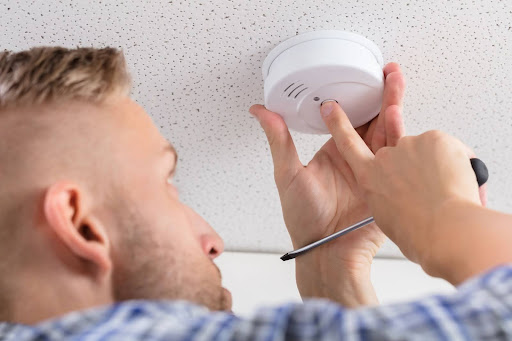Smoke detectors are the first line of defense in alerting you and your family to a fire, potentially saving lives and preventing significant damage to your home. That’s why it’s essential to keep them in optimal working condition. When it’s time to replace your smoke alarms, there are many options available, and the choice isn’t always as easy as picking the least expensive one.
Neighborhood Plumbing, Heating, Cooling and Electrical offers reliable electrical services to keep your home systems safe, efficient, and up to code. Learn everything you need to know about replacing your smoke detectors, from understanding the different types available to making sure they are installed correctly. Join us as we explore the key considerations and best practices that will help keep your home safe and sound.
Choosing the Right Type of Smoke Detectors
Varying Smoke Alarm Technology
There are primarily two types of smoke alarms available: ionization and photoelectric. Ionization smoke alarms are quicker to respond to flaming fires, whereas photoelectric alarms are better at detecting smoldering fires. For comprehensive safety, many choose dual-sensor smoke alarms, which combine both technologies to detect various fires more effectively.
Hardwired vs. Battery-Operated Smoke Alarms
When replacing your smoke detectors, it’s essential to consider whether to choose hardwired smoke alarms or battery-operated ones. Hardwired alarms are connected to your home’s electrical system and often include a battery backup to ensure functionality during a power outage. On the other hand, battery-operated alarms are usually easier to install but require more frequent maintenance to replace batteries. Regardless of the type, checking the backup battery’s health by using the test button should be a regular practice.
Interconnected Smoke Alarms
Interconnected smoke alarms, which trigger simultaneously if one smoke alarm sounds, are highly recommended for larger homes for enhanced safety. Interconnected smoke alarms are wired so that they communicate with each other across a shared electrical circuit, enabling all alarms to sound simultaneously if one detects smoke.
Installation and Maintenance of Smoke Detectors
Proper Placement and Installation
Smoke alarms should be installed inside every sleeping area, outside each bedroom, and on every level of your home, including the basement. The manufacturer’s instructions provide critical guidance on how to install the wiring harness and the entire smoke alarm unit correctly. It’s crucial that the installation complies with local codes, which may dictate the type and placement of alarms based on the layout and age of existing homes.
Testing and Replacing Your Smoke Alarms
It is recommended that smoke alarms be tested using the test button. You should test smoke alarms monthly. The entire smoke alarm should be replaced every ten years or as indicated by the manufacturer’s date. Keeping up with the expiration date and replacing older smoke detectors with newer models can keep your home adequately protected at all times.
The Impact of Local Codes on Smoke Alarm Selection
Local building and fire codes can significantly influence the type of smoke detectors you need to install in your home. These codes are designed to meet safety standards that address specific risks associated with residential fires. Compliance with these codes is not only a legal requirement but also a critical component of your home’s fire safety strategy. Hardwired and interconnected smoke alarms are often required in new constructions and major renovations to enhance the effectiveness of the smoke detection system.
Why Choose Professional Installation?
Replacing an old smoke detector might seem straightforward, but there are many technical considerations, including understanding the electrical system, adhering to safety standards, and finding the optimal placement. Professionals from Neighborhood Plumbing, Heating, Cooling and Electrical are equipped to handle these complexities. Our team makes sure that your smoke and CO detectors are installed according to the latest safety standards and local codes. By opting for professional installation, you’ll have fire safety measures that are as robust and reliable as possible.
Contact Us for Smoke Alarm Services in St. Cloud & Central MN
We offer comprehensive services in plumbing, heating, cooling, and electrical systems — ensuring that your home is safe, efficient, and up to code. If you are in St. Cloud & Central Minnesota and looking to upgrade or replace your smoke detectors, don’t hesitate to contact us. Let us help you enhance the safety of your home with the latest in smoke detector technology.




